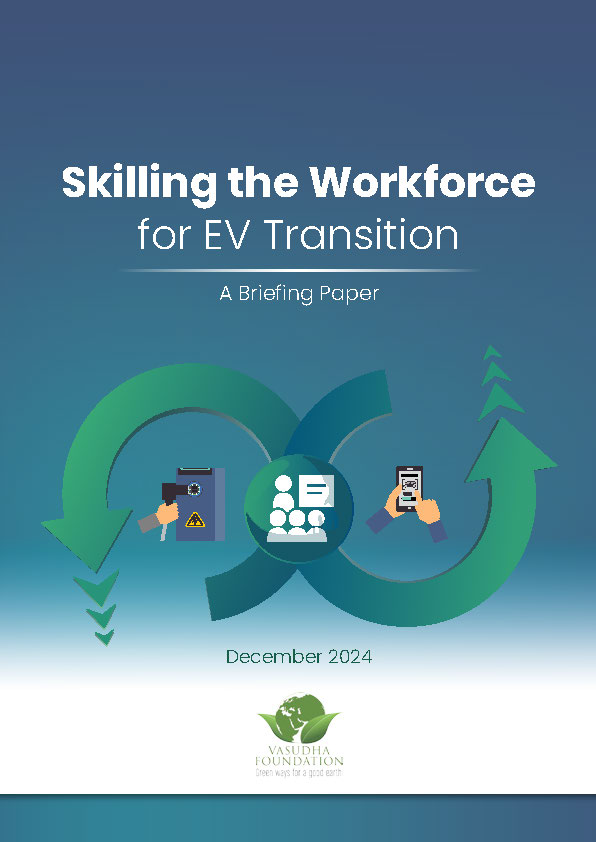
EV sales by 2030. In 2023-24, the EV registration accounted for 7% in the total vehicles registered with 1.7 million EVs. This tectonic shift from ICE vehicles to EVs, driven by environmental concerns and technological advancements, is reshaping the entire automotive value chain, including manufacturing, sales, and service.
This transition is reshaping the entire automotive value chain and necessitates urgent focus on workforce
skilling and reskilling. International examples underscore this urgency: the UK and Australia face high EV repair costs due to skilled worker shortages, leading to premature vehicle write-offs, while U.S. non-Tesla charging stations operate at 72% uptime versus the required 97% due to maintenance personnel shortages. All this highlights the importance of gearing up for not just the manufacturing, but also the repair and maintenance needs of an EV ecosystem.
The Government of India has recognised this imperative, incorporating EV-focused green jobs in its national roadmap, as highlighted in the Prime Minister’s Post Union-Budget Conference speech. The 2024-25 budget prioritises skilling and employment, while the upcoming 4th National Conference of Chief Secretaries includes ‘employment, entrepreneurship and skilling’ on its agenda, due in November 2024.
The automotive sector is the third biggest employer in the manufacturing sector, responsible for 9.58%10 of the employment. It provided direct and indirect employment to 32 million11 people in 2018, projected to reach to 46 million by 2026.
Given this vast employment footprint, this paper analyses emerging skill gaps and requirements in the ICE-to-EV transition, examines the current skilling ecosystem, and incorporates insights from industry leaders like Hero Electric and Ready Assist, who are undertaking flagship training programs for service technicians. Through this comprehensive approach, the paper seeks to contribute to the development of effective strategies for building a future-ready automotive workforce in India.




